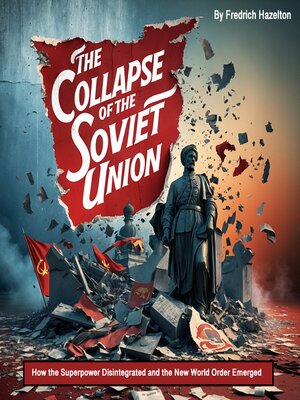The Collapse of the Soviet Union
audiobook (Unabridged) ∣ How the Superpower Disintegrated and the New World Order Emerged
By Fredrich Hazelton

Sign up to save your library
With an OverDrive account, you can save your favorite libraries for at-a-glance information about availability. Find out more about OverDrive accounts.
Find this title in Libby, the library reading app by OverDrive.



Search for a digital library with this title
Title found at these libraries:
| Library Name | Distance |
|---|---|
| Loading... |
The Soviet Union, once the most powerful socialist state on the planet, dominated global politics and economics for much of the 20th century. From its establishment in 1922 until its disintegration in 1991, the USSR stood as a superpower, rivaling the United States in military strength, technological innovation, and ideological influence. The Soviet Union was not just a political entity; it was the manifestation of a grand vision of socialist governance that sought to reshape the world. Its rise to power was marked by revolution, war, and the forging of a unique socio-economic structure that stood in stark contrast to the capitalist world.
However, by the late 1980s, the Soviet Union faced insurmountable challenges. The centralized economy, which had initially driven industrial growth, was beginning to falter under the weight of inefficiency and stagnation. The military and political dominance the USSR had long enjoyed began to erode, and the ideological tenets that had once inspired its citizens no longer resonated with the younger generation. The political leadership, while still powerful, was marked by infighting, and the population grew disillusioned with the government's inability to reform. Amid this turmoil, Mikhail Gorbachev ascended to the position of General Secretary of the Communist Party of the Soviet Union in 1985. Gorbachev's policies of perestroika (restructuring) and glasnost (openness) sought to address the growing dissatisfaction and revive the Soviet state, but they inadvertently exposed the deep-rooted problems that had been festering for decades.
The decision to allow greater political freedom and economic flexibility unintentionally sparked a wave of unrest throughout the Soviet republics. Nationalist movements, long suppressed, began to rise, and demands for greater autonomy became louder...







